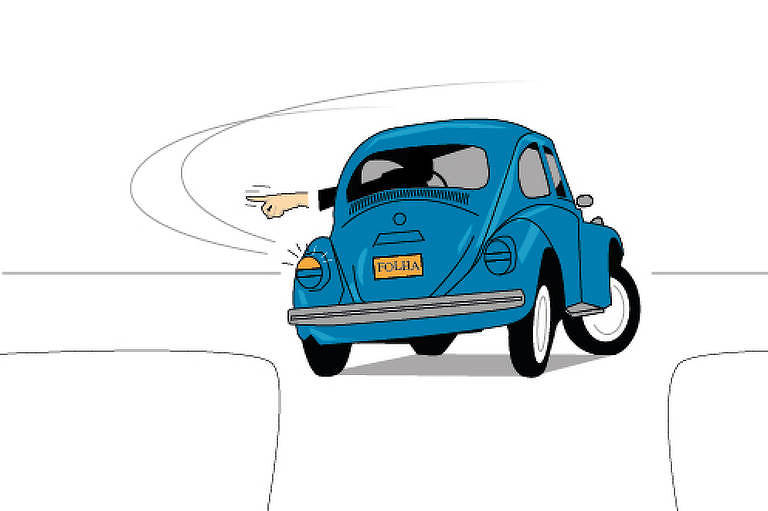Much has been said about June 2013 in this June 2023, which ends with the legal removal of one of its main beneficiaries, Jair Bolsonaro. Ten years, a time of important transformations in the country, in politics, in the economy, in society. In general, for the worse. It didn't start in that June, nor does it end in this one, but it is reasonable to see the period as a fundamental chapter in the great informative disorder that many predicted would occur. No one, however, came close to dimensioning the latitude of what came to be.
June, ten years ago, in addition to what has already been discussed in this newspaper and elsewhere, was a major examination of the then state of the media. "Myopia", according to the diagnosis of a specialist in the phenomenon, sociologist Angela Alonso, author of "Treze - A Política de Rua de Lula a Dilma" ("Thirteen - Street Politics from Lula to Dilma") (Companhia das Letras). "The media, and Folha was no exception, understood the street as a domain of the left wing. There were many signs that this was no longer true", says the Politics columnist, recalling many events preceding the June happenings, organized mainly by right-wingers, underreported.
Alonso, in her research, noted the so-called mainstream press that was oblivious to the dissatisfaction that was popping up across the country: from agribusiness to indigenous people, from people displaced by the major sporting events that the country would host to defenders of public and private morals. Records of demonstrations were more easily found in local newspapers, blogs, and content produced by NGOs. The giant's alarm clock had been going off for some time when the newspapers in the urban centers began to be bothered by the kids disturbing the traffic. As already discussed in this column, the coverage shifted from exacerbated punitive attitude, concurrent with police violence, to a kind of " anti-corruption and unanimously anti-PT rhetorical calling", analyzes Alonso.
The anti-PT (Workers' Party) mentality here is key. The media's adherence to Lava Jato's legal operators is praised, but the courtship began earlier with prosecutor-turned-judge Joaquim Barbosa, who conducted the monthly allowance case against the Workers' Party.
Barbosa was portrayed as a kind of Batman, in a black cape, a vigilante, just as Alexandre de Moraes, the current prosecutor turned judge, is idealized as a sheriff. A photo published by Folha with the Lava Jato prosecutors in an "Untouchables" style became famous in legal circles. They were presented to readers as the team producing the bubbling first results of the operation, while lawyers already anticipated problems.
To claim that journalism did not fuel this 'spectacularization' is dishonest. Lava Jato (Operation Car Wash), on the other hand, contributed to the consolidation of a type of activist media, especially from the right wing, which took its first steps or, depending on the case, faced the stress test during the 2013 movements. (Alonso comments that the various retrospectives still retain the vice of looking to the left: at Folha, one talks with those in charge of Mídia Ninja, much less with the equivalents of the opposite field.)
The wave of support for Sergio Moro and Deltan Dallagnol was not limited to the new protagonists. Elements of the traditional press changed outfits or admitted old repressions. Does anyone remember the Jovem Pan radio station which only played gospel music on Good Friday?
New and old characters embraced not only a conservative, anti-PT, or anti-political agenda but also an inherent vice of the extreme right, the propagation of fake news.
It is in this environment that the candidacy of a professional politician fermented, a folkloric member of the lower clergy of Congress turned outsider, Bolsonaro. In which part of the media embarks on the belief that it would be worth swallowing the occasional conservatism in customs in the name of supposed liberalism in the economy. It is undeniable that Folha and its main competitors soon fell in love with the Siren Paulo Guedes.
It is not from this environment that the Lava Jato antidote originates. Vaza Jato (a journalistic investigation into Operation Car Wash information leaks), which changes not only the direction of the operation but also the country's political landscape, is the work of an independent website, with no funding issues, headed by a foreign journalist with a strong reputation, responsible for one of the biggest news stories in this century, the Edward Snowden affair.
Would the wiretaps that exposed the promiscuity between prosecutors and the magistrate of Curitiba have had the same and swift treatment if they had fallen into the hands of some vehicle of the so-called traditional media?
June 2013 did not just start the anti-politics craze or the establishment of anti-PTism. It is the moment when the refusal of the professional press, previously full of bravado, becomes feasible. An exponent of this disgust, Bolsonaro is gone, but the problem he represented remains.
June is over, but winter is just beginning.
Jose Henrique Mariante
An engineer and journalist, he was a reporter, correspondent, editor, and secretary at Folha, where he has worked since 1991. He is the ombudsman
Translated by Cassy Dias
